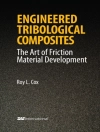This book describes in detail the reported synthesis methods of inorganic perovskite semiconductors, including nanocrystal, films, and single crystals. Then, the promising properties of inorganic perovskite semiconductors, such as high luminescent efficiencies, strong absorption, and excellent stability, are discussed and summarized. Owing to the attracted performance of inorganic perovskite semiconductors above, their potential applications in solid-state lighting and visible light communication, laser devices, solar cells, detectors, as well as electronic devices, are reviewed in this book. Apart from the conventional inorganic lead halide perovskites, lead-free metal halide perovskites are described and discussed. Finally, it also covers the recent challenges and perspectives of the inorganic perovskite semiconductors. This book is intended for undergraduate and graduate students who are interested in inorganic perovskites, researchers investigating novel inorganic perovskite, and engineers who working on the optimization of inorganic-perovskite-based devices.
Table des matières
Properties of Inorganic Perovskites.- Preparation of inorganic perovskites.- Inorganic perovskite lighting and visible light communications.- Inorganic Perovskite Semiconductors Laser.- Inorganic Perovskite Solar Cells.- Inorganic perovskite photodetectors.- Inorganic perovskite high-energy radiation detectors.- Inorganic perovskite electronic devices.
A propos de l’auteur
Prof. Zhigang Zang received his Ph.D. degree from Kyushu University in 2011. He joined School of Optoelectronic Engineering, Chongqing University as a professor since 2014. His research interests mainly focus on the synthesis of perovskite semiconductor materials and their applications in solar cells, photodetectors, and light-emitting diodes.
Dr. Shuangyi Zhao received his Ph.D. degree from Zhejiang University in 2018. He joined Chongqing University as a postdoc researcher since 2019. His research interests mainly focus on perovskite-based lighting, visible light communication, and high-energy radiation detection.
Dr. Wensi Cai received her Ph.D. degree from University of Manchester in 2019. She joined Chongqing University as a postdoc researcher since 2020. Her research interests mainly focus on oxide semiconductor- and perovskite-based electron devices.Dr. Huaxin Wang received his Ph.D. degree from Polytechnic University of Madrid in 2018. He joined Chongqing University as a postdoc researcher since 2018. His research interests mainly focus on perovskite-based solar cells.












